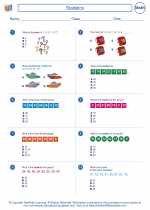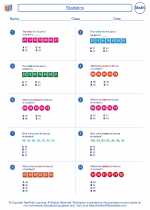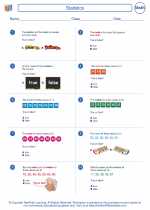Financial Planning Study Guide
Setting Financial Goals
- Financial goals are specific objectives that you want to achieve through financial planning.
- Examples of financial goals include saving for a vacation, buying a home, or building an emergency fund.
- To set effective financial goals, they should be specific, measurable, achievable, relevant, and time-bound (SMART).
Creating a Budget
- A budget is a plan that helps you track your income and expenses.
- To create a budget, you need to list all sources of income and categorize your expenses (such as housing, transportation, food, and entertainment).
- By comparing your income to your expenses, you can identify areas where you can save money and allocate funds toward your financial goals.
Managing Debt
- Debt management involves understanding and controlling the amount of debt you have.
- It's important to prioritize high-interest debt and consider strategies such as debt consolidation or repayment plans.
- Managing debt effectively can help you avoid financial stress and achieve your long-term financial goals.
Saving and Investing
- Saving involves setting aside a portion of your income for future use, while investing involves using your money to potentially earn more money over time.
- Common saving and investment options include savings accounts, certificates of deposit (CDs), stocks, bonds, and retirement accounts.
- Understanding the risk and return associated with different investment options is crucial for making informed investment decisions.
Making Informed Financial Decisions
- Being informed about financial products, services, and concepts is essential for making sound financial decisions.
- Key concepts to understand include interest rates, inflation, financial markets, and the impact of taxes on investments.
- Seeking advice from financial professionals and conducting thorough research can help you make informed decisions about your money.
◂Math Worksheets and Study Guides Sixth Grade. Statistics
Study Guide Statistics
Statistics  Worksheet/Answer key
Worksheet/Answer key Statistics
Statistics  Worksheet/Answer key
Worksheet/Answer key Statistics
Statistics  Worksheet/Answer key
Worksheet/Answer key Statistics
Statistics  Worksheet/Answer key
Worksheet/Answer key Statistics
Statistics  Worksheet/Answer key
Worksheet/Answer key Statistics
Statistics  Worksheet/Answer key
Worksheet/Answer key Statistics
Statistics 

 Worksheet/Answer key
Worksheet/Answer key
 Worksheet/Answer key
Worksheet/Answer key
 Worksheet/Answer key
Worksheet/Answer key
 Worksheet/Answer key
Worksheet/Answer key
 Worksheet/Answer key
Worksheet/Answer key
 Worksheet/Answer key
Worksheet/Answer key

The resources above cover the following skills:
Data Analysis and Probability (NCTM)
Select and use appropriate statistical methods to analyze data.
Find, use, and interpret measures of center and spread, including mean and interquartile range.